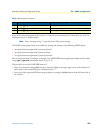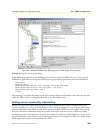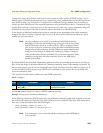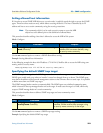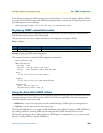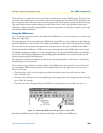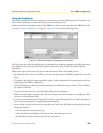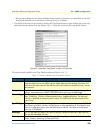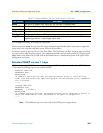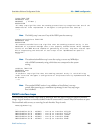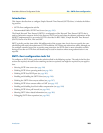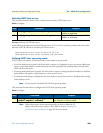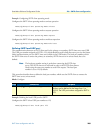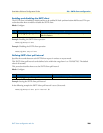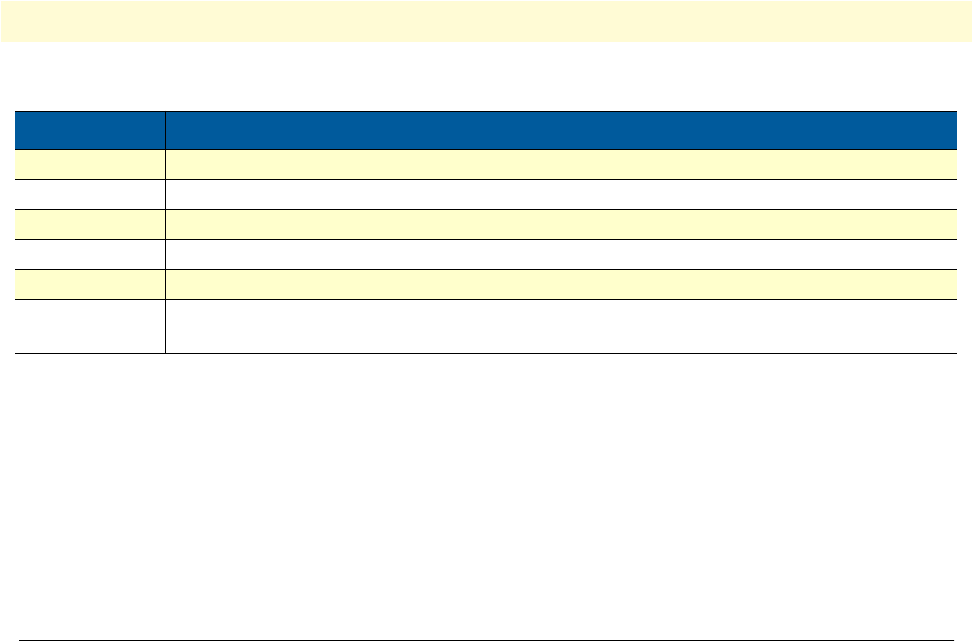
Standard SNMP version 1 traps 279
SmartWare Software Configuration Guide 25 • SNMP configuration
You can stop the listening by clicking the Stop button.
When you need to delete the trap, select the trap to be deleted and click the Delete Trap button or right click
on the trap in the trap table and select option Delete the Selected Rows.
Yet another option in the Trap Viewer is the ParserEditor. The TrapViewer can filter incoming traps according
to certain criteria called the parser criteria. The configuration of the criteria is made possible by using the parser
editor. Refer to the AdventNet SNMP Utilities documentation for a detailed description of the parser editor
configuration and its use.
Standard SNMP version 1 traps
The following standard SNMP version 1 traps are supported. The descriptions are taken from RFC 1215
“Convention for defining traps for use with the SNMP”.
warmStart TRAP-TYPE
ENTERPRISE snmp
DESCRIPTION
"A warmStart trap signifies that the sending protocol entity is reinitializing
itself such that neither the agent configuration nor the protocol entity implementa-
tion is altered."
::= 1
linkDown TRAP-TYPE
ENTERPRISE snmp
VARIABLES { ifIndex }
DESCRIPTION
"A linkDown trap signifies that the sending protocol entity recognizes a failure in
one of the communication links represented in the agent's configuration."
::= 2
Note The linkDown trap is not sent if any of the ISDN ports has gone down.
Entity The source IP address from which the Trap was sent is displayed here.
RemotePort This field reveals the port on which the Trap was sent by the originator.
Community The Community string is displayed here.
Node Source
TimeReceived This displays the Date and Time when the trap was received.
HelpURL The URL shown here gives more details of the received trap. By default, the URL file name is
<generic-type value> - <specific-type value>.html
Table 12. Details available in the Trap Details window (Continued)
Trap Details Description



